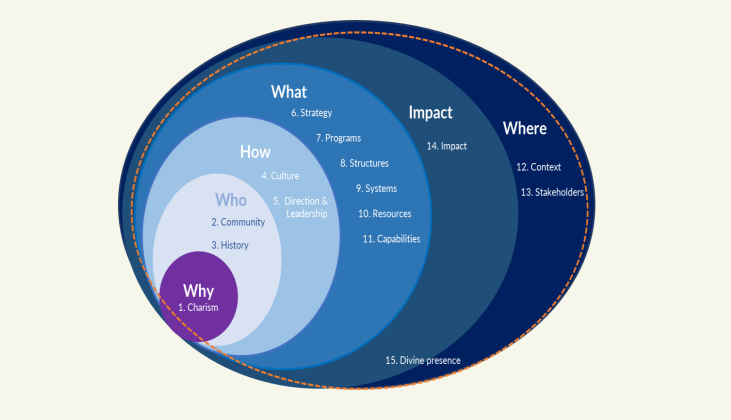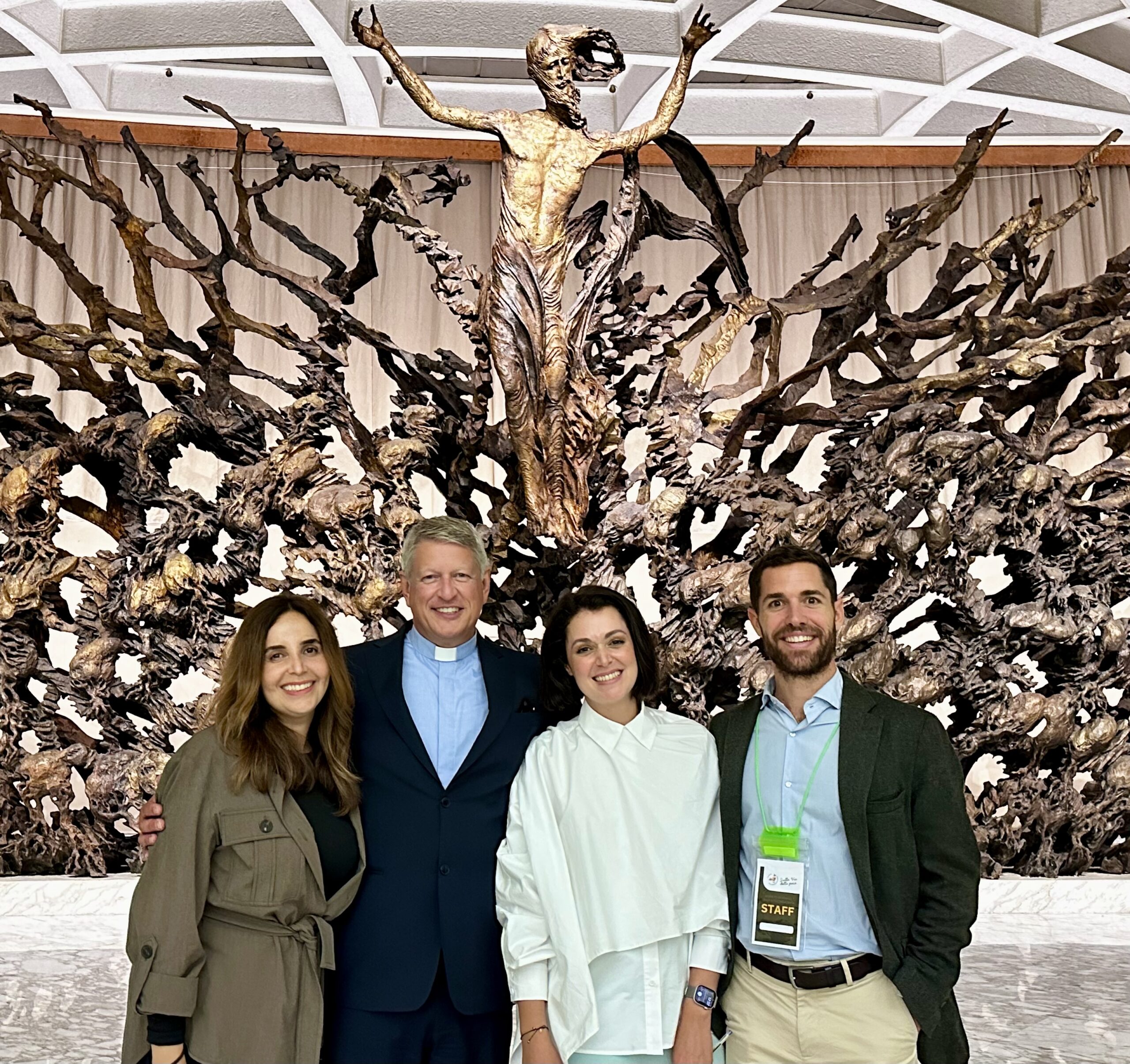“You have to be thin, but not too thin. […] You have to be a boss, but you can’t be mean. You have to lead, but you can’t squash other people’s ideas. […] You have to never get old, never be rude, never show off, […]. It’s too hard!” (1)
It was with this unlikely reference to the movie ‘Barbie’ that a brother, a member of the General Council of a religious congregation in Rome, began his testimony about leadership and his formation experience in the Discerning Leadership in March 2024. It was funny, offbeat, and profound at the same time.
And it was a good image to illustrate his personal transformation, the way he had moved from a life guided by sometimes contradictory external injunctions to a more human and lively way of living and exercising his leadership.
This testimony sparked my curiosity, and when Sandra Chaoul and David Mc Callum invited me to participate in the first module of Discerning Leadership, I didn’t hesitate. But then, what is so special about a formation like this one?

Being detectors of grace
First of all, it is a fundamental inner disposition that we are encouraged to cultivate from the outset: like the Hubble telescope, to discover all the stars, everything that sparkles in the fabric of our lives. And to do this, we must place ourselves in the presence of the Lord, look at the world through God’s eyes, including, and especially, in these uncertain and complex times of our VUCA world. Where do we find God in these events? How does God inspire us to act as Christian leaders?
Mark Ravizza, SJ, passionately shared with us the practice of the Examen, this Ignatian prayer of review, which can become our daily compass. We can intentionally choose to pause and review the various events of our day, not by mechanically going over our agenda, but rather like a child filled with wonder discovering a treasure chest. Yes, it brings joy to see what God has done for me today, how God works alongside me, sometimes despite my resistance! Gradually, we can become leaders, detectors of God’s grace in our lives. By anchoring this practice in our communities or our governing bodies, we become a discerning body, able to sense how God is working in our realities. Sr. Nathalie Becquart reminded us of the inspiring example of the monks of Tibhirine in Algeria.
Developing our self-awareness to serve better
St. Paul encourages us to do this in his letter to the Romans (12:2): “Do not be conformed to this world, but be transformed by the renewal of your mind.” Ignatius of Loyola, too, in his Spiritual Exercises, suggests that we get to know ourselves in the light of God, and thus grow in inner freedom.
So we can turn this telescope used to look at the stars back on ourselves, to see how we function in concrete terms:
– Looking at my schedule, for example, are my purpose, my role, and my tasks aligned? Does my schedule resemble the book I would like to write?
– Do I exercise my leadership consciously and responsibly with and for others?
– Do I mobilize the collective to make the necessary changes that will allow us to live our vocation in this changing world?
The Leadership Circle Profile is also a powerful tool that sheds light on our creative and reactive skills (compliance, protection, control). These are our shadows and our lights, so to speak. It is a call to cultivate our gifts and talents, and also to recognize what hinders us and limits us in the way we exercise our leadership. It can be a little harsh, but oh so enlightening! I suddenly become more aware of situations where I act guided by my fears, and those where I act creatively, following my purpose and guided by the Holy Spirit.
And to cultivate this self-awareness over time, I was given two keys: reflection and prayer, and feedback, by seeking out someone in my circle who could tell me how they see me, and do so with love.
Approaching polarities as creative tensions
“You have to be thin but not too thin, be a leader but not too harsh, etc.” Barbie seems to be immersed in a lot of societal injunctions and contradictions. Our discerning leader, on the other hand, will learn to navigate between polarities, to think in terms of “both this and that” rather than in black and white terms of “this or that.” They experiment with their body, realizing that when they breathe naturally, they move from one opposite pole to the other, from inhalation to exhalation, and that they cannot hold their breath for very long with their lungs inflated or deflated. There is a form of balance and dynamic in navigating between these polarities, provided that we manage to detach ourselves from our preferred pole and recognize the value of the other pole. Pope Francis, in his book, “A Time for Change,” invites us to see that these polarities “interact in a creative and fruitful tension.”
More than a list of injunctions, I heard St. Teresa of Avila’s invitation to touch both sides of a polarity at once, to inhabit the in-between, for example, for us leaders in a synodal church:
- to be grounded AND in motion;
- to listen AND to speak with courage and authenticity;
- to plan AND to remain flexible;
- to lead change AND to maintain balance for teams;
- to exercise authority AND to encourage participation.
All these ingredients allow us to grow in humanity and to open ourselves to more life, walking with the Lord and with the companions who are given to us during this formation. I leave this week in Rome with a few more personal invitations: a call to joy and to cultivate this inner disposition, a desire to connect more with my North, to be guided by it and not by my fears, and an attention to setting boundaries and enforcing them, especially regarding the use of my time. Thank you David and Sandra for making these paths possible, and I can’t wait for the second module!
- “You have to be thin, but not too thin. (…) You have to be a leader, but you can’t be harsh. You have to lead, but you can’t trample on other people’s ideas. (…) You must never age, never be rude, never brag (…) . It’s too difficult!”




